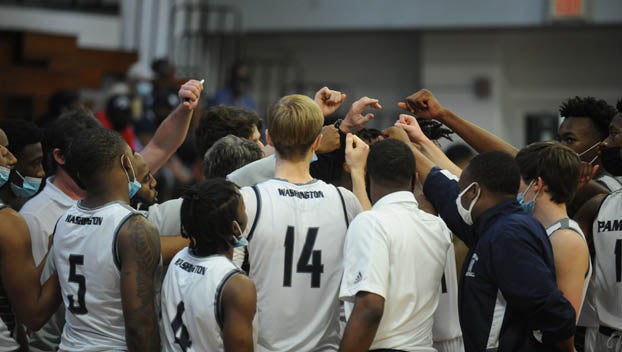Time for a reform, not a death sentence
Published 8:33 pm Tuesday, July 27, 2021

- (Brandon Tester / Washington Daily News)
|
Getting your Trinity Audio player ready...
|
As Sen. Jay Chaudhuri said, House Bill 91 is effectively a death sentence for the North Carolina High School Athletic Association. But is that really a fitting punishment?
The bill seeks to replace the NCHSAA with a panel of 17 educators, athletic directors and coaches selected by the governor and legislative leaders called the North Carolina Interscholastic Commission. The bill has already been approved by two N.C. Senate committees, and is set to reach the Senate Rules Committee before heading to the chamber floor.
The legislators who authored the bill raised concerns about the NCHSAA’s finances, fee structure and overall accountability. Those senators point to the fact that the NCHSAA has accumulated than $40 million in assets — more than any other high school athletic association in the country — while some schools struggle to pay for new equipment and other costs. They also found that the NCHSAA over the past five years has collected more than $400,000 in fines from its member schools, and the organization has awarded just $40,500 in scholarships to 35 students per year.
“This bill is solely about accountability and transparency,” Sen. Todd Johnson said during a committee presentation. “It is what we demand in every single aspect of state government.”
The NCHSAA has governed the state’s high school sports since 1913. The organization has provided countless opportunities for athletes in Beaufort County and beyond. From an operational standpoint, the NCHSAA has done its job well for decades upon decades. But it’s not perfect. And that starts with the $40 million in assets.
The NCHSAA is a private, nonprofit organization, which means it isn’t subject to the oversight you might expect when you’re talking about money spent by publicly-funded schools, families, players and fans.
It isn’t a bad thing to build up assets rather than having to ask for taxpayer dollars. But there is an apparent lack of accountability concerning how that money is spent. It’s been that way for decades, and it needs to stop now.
How do we fix this problem? The immediate answer isn’t to get rid of the NCHSAA.
The answer is to have sincere, detailed discussions between legislators and the NCHSAA concerning the issues brought forth in the bill. There is potential, and, in some cases, a clear need for change in the way the NCHSAA does business. But by axing the organization instead of working to reform it, the state risks throwing out decades of institutional knowledge, leadership experience and protocols that have worked well to this point.
NCHSAA Commissioner Que Tucker put it perfectly while speaking to the Raleigh News & Observer: “We are not a perfect organization. We understand that,“ Tucker said. “But we can only do that when people are willing to work with us instead of dismantling us.”




